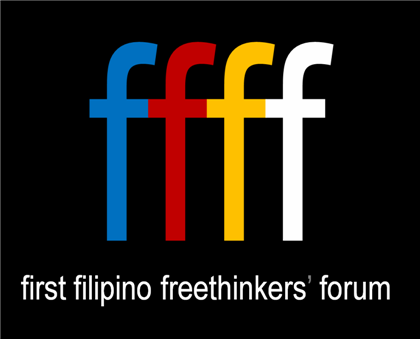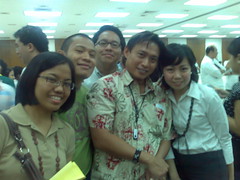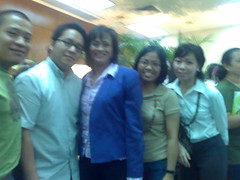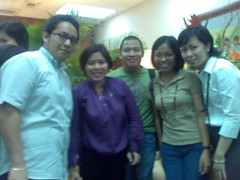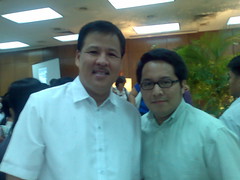Excerpts from Supreme Court Justice Carpio’s address to the U.P. Law Class of 2009 on April 27, 2009:
In 1975, some thirty-four years ago, I too was a graduate of the UP College of Law. I was also seated in an auditorium like this listening to our graduation speaker. Looking back, what would have I wanted then as a young law graduate to hear from our graduation speaker?
With the benefit of hindsight from almost 34 years in the practice of law, as private practitioner, lecturer in the UP College of Law, counsel to the President, and Justice of the Supreme Court, there are six advices I would have wanted to hear in 1975 from our graduation speaker, and which I now humbly offer to you, the Class of 2009.
1. Defend and Protect the Constitution
My first advice is you must, as law graduates and as future lawyers, defend and protect the Constitution at every opportunity. This means you must keep abreast with developments on Constitutional Law, no matter what field of law you practice. As you start your practice, be it labor, corporation law, or litigation, you will tend to ignore developments on Constitutional Law. That is a mistake. Without the civil liberties in the Constitution, you cannot freely practice any field of law. The fundamental rights in the Constitution allow you to practice other fields of law. Without these fundamental rights, the practice of law will be self-demeaning.
I started my law practice during martial law, and for a young lawyer then the legal environment was bizarre. There was a wide gap between law and justice, between the guarantees of the Constitution and the reality on the streets. Many things I learned in law school were irrelevant. The noble and majestic words I read in Supreme Court decisions appeared written for a different country and time, not for the Philippines at that time.
We must not return to those dark days. We must not live through those suffocating years again. That is why everyone who has studied law has a duty to defend and protect the Constitution, especially the civil liberties enshrined in our Constitution. Whenever and wherever our civil liberties are threatened, be the first to oppose those threats, because those threats not only prevent the honest and dignified practice of law, they also menace our fundamental rights as human beings.
When you practice law, you may be enticed by politicians who dream to be dictators to help them rewrite the Constitution for their own benefit. Resolutely fight and oppose such moves, even at the risk of losing your job or clients.. Always remember that the Constitution is written for the benefit of the Filipino people, not for the benefit of one man or one family. No politician, no government official, not even the President of the Philippines, is larger or more important than the Constitution.
2. Preserve the Independence and Integrity of the Judiciary
My second advice is you must preserve the independence and integrity of the Judiciary. If you want the judge to render a fair and impartial decision, regardless of who the parties or lawyers are in a case, then you must insure that the Judiciary remains independent and honest. If you want a level playing field in the practice of law, then you must work hard for an independent and honest judiciary.
This means that you must see to it that only independent, honest and competent people are appointed to the Judiciary. The Integrated Bar of the Philippines has a representative in the Judicial and Bar Council. So does the community of law professors. And so does the community of retired Justices. Working together, these representatives have enough clout to insure that only independent, competent and honest judges are nominated to the Judiciary.
In your practice, you will often be faced with a situation where your client wants to win a case through fair or foul means. Your client may even demand that you bribe the judge first before the opposing side gets him. Politely but firmly decline, and be prepared to walk away from a client who insists that you commit a crime of bribery for his sake. No client is ever worth committing a crime.
If you want an independent and honest judiciary, then never do anything that will corrupt the Judiciary. If you do, then you deserve the Judiciary you get and you have no one else to blame but yourself. There is no dictator if there is no servile citizen. And there is no corrupt judge if there is no litigant or lawyer corrupting him.
Lest you think that the burden of preserving the integrity of the Judiciary rests on practicing lawyers alone, let me cite you the statistics. In the last three years alone, from January 2006 to March 2009, the Supreme Court dismissed thirteen trial court judges and one Court of Appeals Justice, suspended 16 trial court judges and one Court of Appeals Justice, and fined 138 trial court judges. The Supreme Court even imposed a fine of P500,000 on one of its former members, the largest fine ever imposed on a member of the Judiciary. I assure you that the Supreme Court continues to cleanse the Judiciary to maintain its independence and integrity.
Recently, the lawyers of Pakistan have shown the world how to defend and preserve the independence of the Judiciary. The Pakistani lawyers took to the streets to demand the reinstatement of Chief Justice Mohammad Chaudry. The then President of Pakistan, General Pervez Musharraf, dismissed Chief Justice Chaudry for staunchly upholding the independence of the Judiciary. In the face of persistent mass action by Pakistani lawyers, the incumbent President of Pakistan, Asif Zardari, reluctantly reinstated Chief Justice Chaudry. The historic and courageous actions of the Pakistani lawyers strengthened for all time the independence of the Judiciary in Pakistan.
3. Oppose Corruption in Government
My third advice is you must oppose corrupt acts of those who hold public office. Public office is a public trust. If that trust is breached, as future lawyers you must lead the citizenry in demanding an accounting. History has shown that only a vigilant citizenry can prevent abuse of public trust. An abuse of public trust that goes unchecked will repeat itself, and will become widespread and even more vicious.
When I was still in the private practice of law, I was one of those who filed the first plunder case against a sitting President. My law partners and I fielded a battery of lawyers in the first impeachment trial of a President. And these private lawyers assisted the public prosecutors in the plunder trial. The idea that we wanted to convey is that the citizenry, led by lawyers, must prevent abuses especially by the highest public official. If we do not, then no one else will and we will truly deserve the government we get.
4. Observe the Ethics of the Profession
My fourth advice is you must take seriously the observance of legal ethics. Many lawyers think that legal ethics is important only to pass the bar examinations. That is a grave mistake. For the last two years alone, 2007 and 2008, the Supreme Court disbarred 10 lawyers, suspended 52, fined 163, and reprimanded, admonished or warned 108.
No other profession is as tightly regulated and disciplined as the legal profession. And the reason is simple. Lawyers are officers of the court and owe special duties to the court. No other profession owe such special duties to an entire branch of government..
In your practice, it will serve you well if you will now and then read the latest Supreme Court decisions on legal ethics. It is so amazing how lawyers can be so brazen in transgressing the ethics of the profession. Those who disregard legal ethics often have three adversaries: the party affected, the opposing counsel, and the court – and even one of them is one adversary too many. So take seriously the ethics of your profession.
5. Specialize but Keep Abreast of other Fields of Law
My fifth advice is you can specialize in a particular field of law, but you must keep abreast of developments in other fields of law. Complex commercial transactions may require that you specialize in specific fields - in corporation law, intellectual property law, tax law or in other areas. This does not mean that you do not have to know what is happening in other fields of law.
To be good in your area of specialization, you must be able to relate, and reinforce, your arguments from legal principles in other fields of law. Sometimes, the answer to legal questions in your field of specialization may come from other fields of law. Do not develop a tunnel vision by focussing only in your field of specialization.
6. Bridge the Gaps between Law and Justice
My sixth and last advice is you must work to bridge the gaps between law and justice. What is legal is not necessarily just. The U.S. Supreme Court once held that blacks were inferior to whites, and deserved to be slaves. That was the law then, but that was terribly unjust. There are many gaps between law and justice, and it is your solemn mission as future lawyers to close these gaps.
In the United States, the right to privacy was recognized by courts when two private lawyers wrote that it was unjust that an ordinary citizen’s private affairs could be laid bare and ridiculed before the public. The right of blacks to study in the same school and classroom as whites was recognized when activist lawyers questioned the separate but equal doctrine in over half a century of legal battles.
In our country, hate speech against minorities is not actionable. Companies, local and foreign, can exploit the nation’s natural resources without sharing the profits with the Filipino people. These are gaps between law and justice that can trigger social and economic strife among our people. As future lawyers, you have the duty to lead in closing these gaps and thus bring justice to our people.
The absence of a law is not an excuse to allow any form of injustice. And as you have learned in Republic v. Sandignabayan, even the absence of a Constitution is not an excuse to deprive the people of fundamental human rights. One of your greatest challenges is to insure that justice is done even in the absence of a law or even in the absence of a Constitution. Having been taught law in the grand manner in the U.P. College of Law, you will, I am sure, rise to this challenge.








